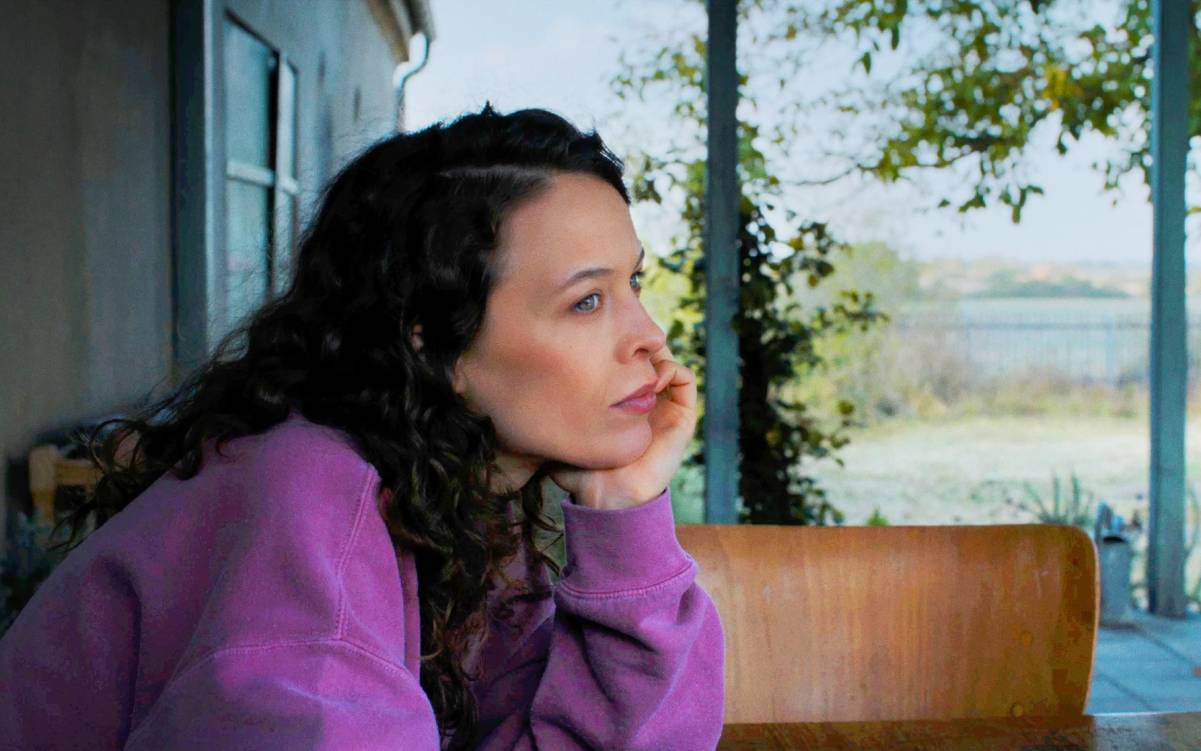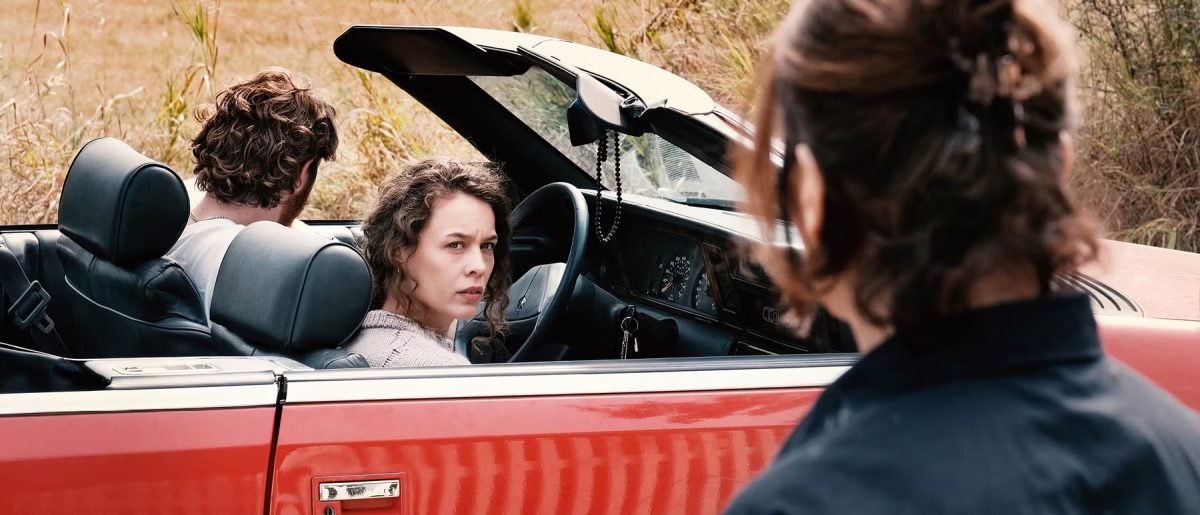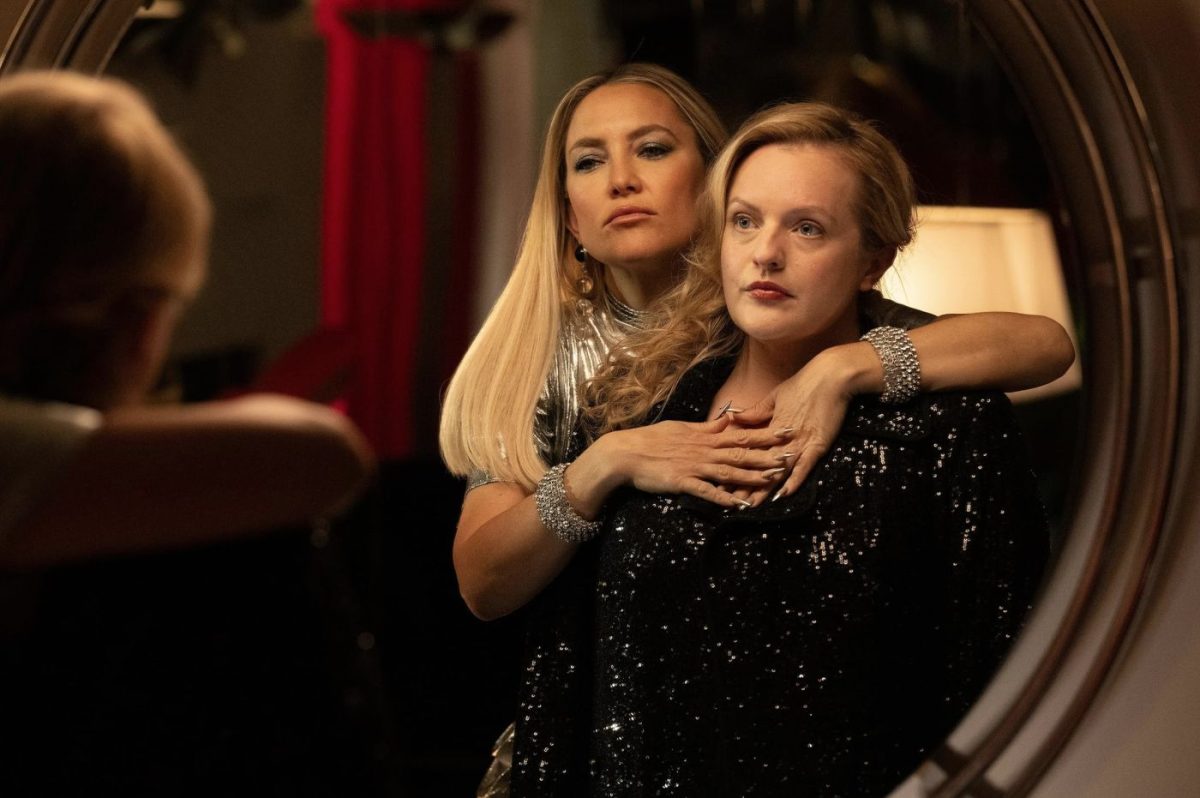For the first few minutes, I wasn’t sure where “Miroirs No.3” (originally “Miroirs No.3”), the latest film from acclaimed 21st-century Berlin film movement director Christian Petzold, was going. It opens in an ethereal, dream-like, detached manner for five minutes before veering into a tragic and depressing direction, with some ugly realistic make-up effects. In the hands of another director, it could have been the beginning of a horror film. However, it really clicks past that pivot with the shift into something more contemplative and gentle, as the tight eighty-six minute runtime manages to include a lot of emotional material, and the screenplay is an example of the “in late, out early” screenwriting rule. It may seem too abstract for some, but it really rewards you for paying attention and not watching passively.
In the opening scene, we meet Laura, played by Paula Bear, in her fourth collaboration with Petzold, after “Transit” (2018), “Ondine” (2020), and “Affaire” (2023). Here she is, a soft music student who seems dissatisfied with her life, wandering aimlessly, forgetful, in a relationship where any love or affection seems to have disappeared. After an unexpected accident, Laura is greeted by Betty (Barbara Auer), a woman who lives alone on the road and couldn’t stop staring at Laura when she drove by earlier. Again, this may be the beginning of a horror film, but Petzold’s choice to tell a story about overcoming grief and healing makes the film much more memorable, and at the heart of the film is the strange, almost mother-daughter relationship between Betty and Laura.
There are no risks or attempts at innovative cinematography, but this is not a story for which such an approach is appropriate. The camera is mostly static, and the editing is gentle, allowing us to stay in the moment. Then comes the introduction of Betty’s husband, Richard (Matthias Brandt), and her son Max (Eno Trips) – both familiar faces from Christian Petzold’s usual band of collaborators. Their arrival marks a smooth shift in tone and reveals one of the film’s most unexpected strengths: it’s genuinely funny. I found myself laughing out loud more than once, as the film strikes a delightful balance between sharp verbal wit and well-timed physical comedy. This sudden and natural shift of gears adds touch and warmth, complementing the story’s more serious emotional undercurrents.
Some discoveries arise naturally from said interactions, but are never presented as major transformations. It’s incredibly obvious what will be revealed, especially the big ones, if you’ve paid attention, as Petzold doesn’t bother to hide them. It’s full of simple, life-giving moments, from conversations about fixing a dishwasher, to cycling along roads surrounded by gorgeous views of the German countryside, to two characters sitting in a garage drinking beer. There is a simplicity in the way it is presented that makes you believe the intimate drama immediately.


Read also: The 20 Best French Films of the Decade (2010)
There are other side characters, but Laura, Betty, Richard and Max are the core of the film. If one actor dropped the ball, it would be painfully obvious, and the entire movie would fall apart. Each member of the quartet brings remarkable depth to their role – not just individually, but in the complex and ever-changing dynamics they share with each other, forming a richly woven web of interpersonal relationships.
There is a heavy, bleak sense of shared history between the three relatives, their emotions subtly reshaped by Laura’s arrival, which upsets the fragile balance in their lives. She became, at once, a beacon of hope and a haunting presence—a reminder of what was lost, even as she wrestled with her own ghosts. The film isn’t afraid to delve into the mess of raw human emotion, and its relationships never remain static; They transform, break, and heal in ways that feel organic and deeply satisfying as the story unfolds.
There’s also a wonderfully restrained use of music, from the piano piece that gives the film its name, to Frankie Valli’s wonderful needle beat and the Four Seasons’ “The Night,” which led me to play it on repeat for a while afterwards. Furthermore, Petzold knows when not to have music, and focuses on quiet character moments that are integral to the story. It’s all nicely dovetailed into the character’s emotional decisions, but there’s a case to be made, which is that despite the short runtime, Petzold delays the final act just a little longer, where everything comes to a head, and yet the film just keeps rolling.
However, this change of pace allows for some of the film’s most beautiful and entertaining moments, all of which culminate in a great ending that ties everything up perfectly. It’s very satisfying to watch, and very enjoyable to watch as you leave the cinema. “Mirror No. 3” is not Petzold’s strongest work, but it is certainly worth seeing.
Read more: The 10 best French films of 2024
Links to the movie Mirrors No. 3 (2025): IMDb, Rotten Tomatoes, Wikipedia, Letterboxd
Mirrors No. 3 (2025) Starring: Paula Bear, Barbara Auer, Matthias Brandt, Eno Trips
Mirrors No. 1 movie 3 (2025) Film duration: 1 hour and 26 minutes, Genre: Drama/Mystery and Suspense
Mirror viewing location No. 3

